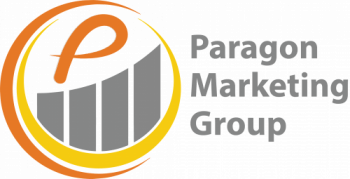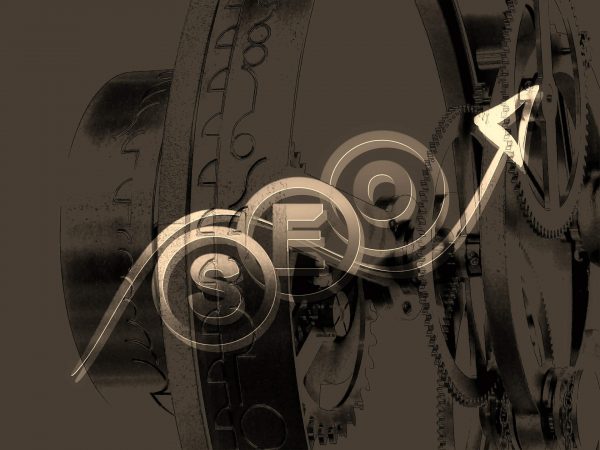In today’s competitive landscape, making a strong first impression for your brand could be the difference in someone choosing your business over a competitor’s. If you want your small business to stand out in the market, it’s essential to craft a memorable brand image that will resonate with your target audience.
In this blog post, we’ll explore some effective marketing tips to help your brand make a positive and lasting first impression.
How to Make a Lasting First Impression for Your Brand
Uncover four key insights into crafting a brand presence that leaves a lasting mark on your customers and prospects alike:

1. Establish a Professional Website
In the digital age, having a professional website builds credibility and attracts customers. Your website serves as the online face of your brand, providing visitors with valuable information about your products or services.
To ensure your website makes a positive first impression, your website should be . . .
- User-friendly. Visitors should find your website easy to navigate and understand. Your site should have a flow to make it seamless for users to explore with clear CTAs (calls to action) to move visitors toward making a purchase, booking a service, or contacting the business.
- Visually appealing. There’s a science to color and design, and visitors will see right through a website that had no time and effort put into its design. Your website shouldn’t be filled with ads, difficult-to-read fonts, or eight different colors.
- Mobile-responsive. Some of your client base might be on a computer. Others may be on a tablet or mobile device. If you want your site to attract the highest possible number of visitors, then it must be accessible across multiple devices.
- Optimized for SEO. Optimizing your site for search engines will improve your site’s visibility and attract organic traffic.
Takeaway: Establishing a professional website that is user-friendly, visually appealing, mobile-responsive, and optimized for SEO will help make a positive first impression for your brand.
2. Maintain an Active Social Media Presence
Social media platforms offer a valuable opportunity to engage with your audience and showcase your brand’s personality. But have you ever visited a company’s Facebook or Instagram account and realized they hadn’t posted in a few months? Visitors are often left to fend for themselves or become “detectives” in finding the information for which they’re searching.
That’s why consistently posting relevant and engaging content on platforms like Facebook, Instagram, LinkedIn, Pinterest, Nextdoor, or other platforms can answer the questions for which visitors might be searching all while helping your brand build awareness and establish credibility in your industry.
Aside from posting consistently, here are a few ways you can actively engage with your clients on social media:
- Respond to comments and messages promptly.
- Stay up-to-date with current trends.
- Note what type of content with which your visitors engage, and then share more of that content on your platforms.
Takeaway: Build positive brand awareness by maintaining an active social media presence through consistent posting and active engagement.
3. Invest in Quality Creative Assets
Compelling creative assets are essential for capturing the attention of your audience and conveying your brand message effectively. Invest in high-quality assets, including photography, videography, graphic design, and marketing materials, to convey professionalism and attention to detail.
Similarly, well-crafted copy that speaks to your brand’s values and resonates with your target audience can help you make a memorable impression and differentiate your brand from competitors. Whether you collaborate with in-house creatives or contract with a marketing agency like Paragon Marketing Group, we recommend having talented professionals create visually stunning content that reflects your brand’s personality and values.
Takeaway: Investing in high-quality creative assets can help your brand stand out and leave a lasting impression on potential customers.
4. Provide Exceptional Customer Service
Delivering exceptional customer service is key to making a positive first impression and building long-term relationships with your customers. Your branding never stops at the sales or marketing side. To maintain a positive reputation and establish your brand as one where people want to give their business (and continue giving their business), you need to provide extraordinary customer service. A few ways you can accomplish this include:
- Responding to inquiries and concerns quickly. If there’s been an issue with a client’s service or product, one of the best ways you can manage the problem is by responding quickly so that the client understands they’re a priority. Often the way in which you defuse a tricky situation can become more memorable than the issue itself.
- Address customer feedback and reviews thoughtfully. As a small business owner, it’s never easy to receive a critical review or negative feedback. But that doesn’t mean you can’t respond professionally, even if the review was unkind or untrue. Plus, other prospective clients will be watching and reading what you respond. How you respond will tell them whether or not your business is worth considering.
- Go above and beyond to exceed customer expectations. There are so many ways you can accomplish this. Whether you offer a special discount, give extra attention to detail to a customer’s account, follow up on service where a client had concerns, or even offer a listening ear, you can always find a way to exceed expectations. Your customers will not forget how you made them feel.
Takeaway: By prioritizing customer satisfaction, you can create a positive reputation for your brand and earn the trust and loyalty of your audience.
Here’s a Quick Recap:
- Establishing a professional website that is user-friendly, visually appealing, mobile-responsive, and optimized for SEO will help make a positive first impression for your brand.
- Build positive brand awareness by maintaining an active social media presence through consistent posting and active engagement.
- Investing in high-quality creative assets can help your brand stand out and leave a lasting impression on potential customers.
- By prioritizing customer satisfaction, you can create a positive reputation for your brand and earn the trust and loyalty of your audience.
Crafting a strong first impression for your brand is essential for small businesses looking to succeed in today’s competitive market. By following these marketing tips and investing in your brand’s online presence, design, and customer service, you can create a memorable and impactful brand image that resonates with your target audience.
To learn more, please visit our website at paragonmarketinggroup.com or call us at 262-443-9092 to learn more. We’re here to help you elevate your brand and make a lasting impression.




